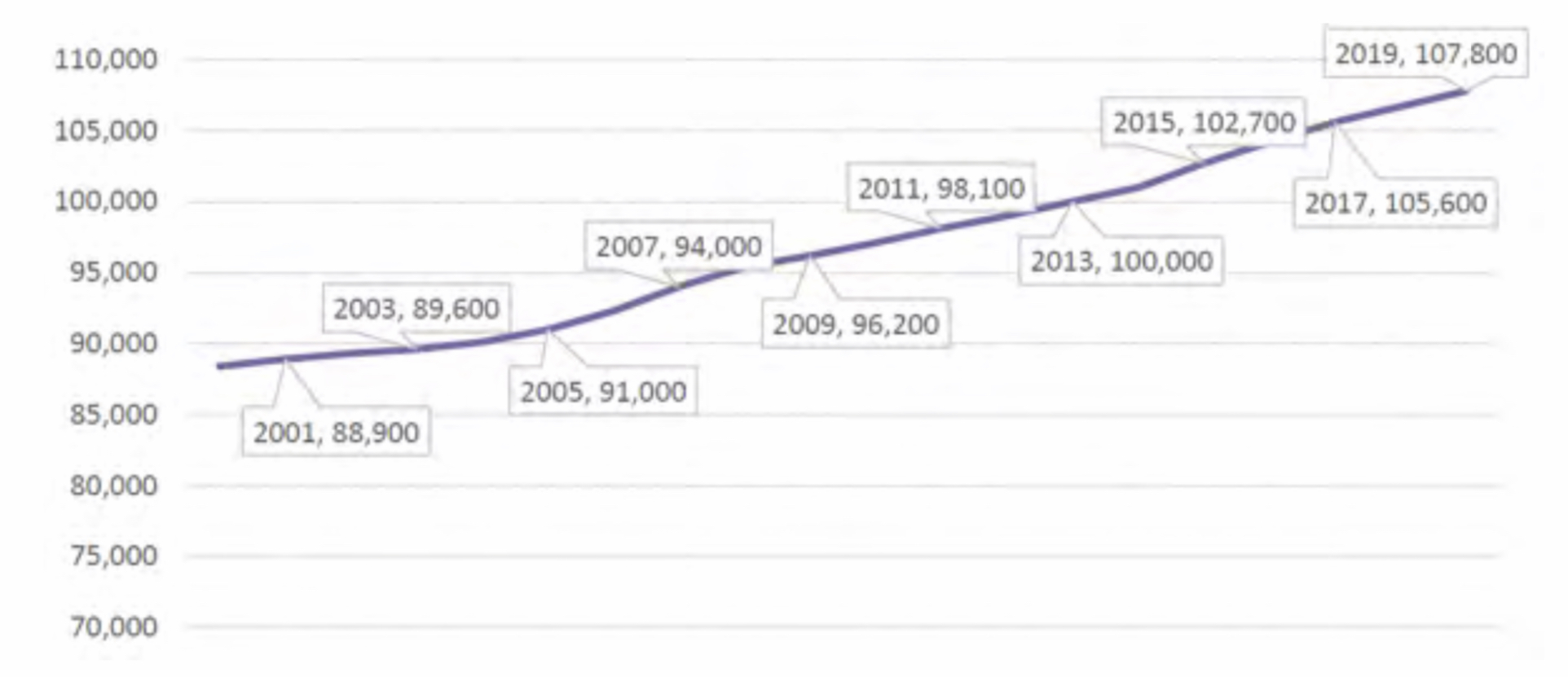


The new Government has pledged to come up with a fresh Population Policy by the end of next June.
The Council of Ministers will be the first to be formally required to publish a Common Population Policy, which must be updated at least once a year.
One of Chief Minister Kristina Moore’s priorities for next year, outlined in her Government’s Ministerial Plan, which was published this week, is to develop this policy, which will be published within the next eight months.
Deputy Moore’s Government is obliged to produce a policy under the terms of the last Government’s Common Population Policy, which was approved by the States in February.
The then-Senator Moore voted against it. However, her now-Deputy Chief Minister, Kirsten Morel, supported it.
Above all, the policy’s overarching aim is to “progressively reduce Jersey’s reliance on net inward migration within the currently agreed Common Strategic Policy”, which each Government has to come up with at the start of its term.
Last week, the new Government duly did - though it makes no clear reference to population control.

Pictured: How the population has grown since 2021, although there was a dip to 103,267 in 2021.
However, in her Ministerial Plan, Deputy Moore commits to “progress population and migration policy” by:
This is in addition to coming up with Population Policy for her Government’s four-year term in office.
The island’s population and whether it should be controlled has long been both an important and divisive issue, with surveys consistently finding that islanders perceive the island as being overcrowded.
Since the Common Population Policy was debated eight months ago, the 2021 Census has been published, which found that the population stood at 103,267 on 21 March 2021.
This was 5,400 – or 5.5% - higher than the previous census in 2011 although down on a 107,800 estimate at the end of 2019.
Questions have been raised about the impact of Brexit and the pandemic on the 2021 Census.
The new Government is continuing efforts – initiated by its predecessor – to get more accurate data on how many people live in Jersey.
It will also have to wrestle with the various challenges, including filling vacancies – both in the private and public sector - reducing the pressure for housing, protecting the environment, reducing carbon emissions, and improving the productivity of the island’s workforce.
The Bridging Island Plan, which defines planning policy over the next three years, adopts a near-term planning assumption of growth in the island’s population of around 4,000 people over the five years covering 2021-25, based on an average annual increase of +800 per year.
The new Government will have to decide if it should set a population target, which would have to fit within the agreed aim to reduce net inward-migration.
Overall, a focus group set up as part of the Common Population Policy consultation last year perceived Jersey’s population size as being “too big” and considered the island to be overcrowded.
The majority highlighted the small size of Jersey and how its facilities and infrastructure could become unable to cope with the growing population.
However, many recalled the economic success immigration has brought Jersey, particularly in sectors such as hospitality, agriculture and finance.
Comments
Comments on this story express the views of the commentator only, not Bailiwick Publishing. We are unable to guarantee the accuracy of any of those comments.